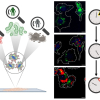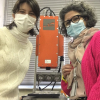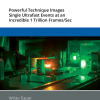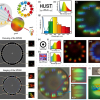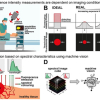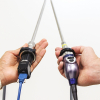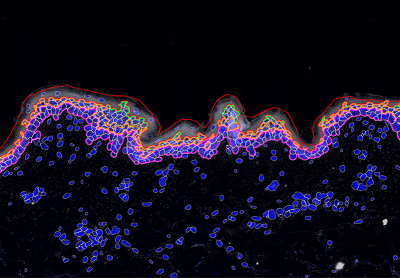
The ageing process is most apparent on the skin. In the newly opened “SKINMAGINE” (Multimodal Imaging of Aging and Senescence of the Skin) Christian Doppler Laboratory, dermatologists from MedUni Vienna have joined forces with biotechnologists from the University of Natural Resources and Applied Life Sciences Vienna and chemists from Vienna University of Technology, as well as the company Chanel, to study the interaction of metabolism, cellular communication and cellular quality control in skin ageing accelerated by environmental stress.
Skin ageing does not happen in isolation, but in interaction with the environment and changing processes in the body as a whole. It is accelerated by the “urban exposome”, the combined impact of factors such as environmental pollution and sunlight. Normal skin ageing and skin ageing accelerated by the urban lifestyle affect lipid, protein and glucose metabolism, the capacity for regeneration and communication in the tissue. “We want to analyse at a cellular level the interaction of the mechanisms that contribute to skin ageing with the greatest possible optical, chemical and biochemical precision”, explains Laboratory Director Florian Gruber from MedUni Vienna’s Department of Dermatology.
The researchers aim to develop new simple, quick and painless methods for monitoring skin ageing phenomena in healthy people. This could be achieved with Raman microspectroscopy. “Imaging mass spectrometry enables us to pinpoint thousands of biological molecules in tissue, as well as skincare products in the skin. We are therefore able to produce a skin-condition ‘map’”, explains Martina Marchetti-Deschmann. Mass spectrometry is being combined with other imaging techniques to produce a multimodal application that provides comprehensive information about fundamental biological processes. The laboratory will also test the potential for assessing a person’s skin condition by taking a sample directly from the surface of the skin and inputting it into the device online.





